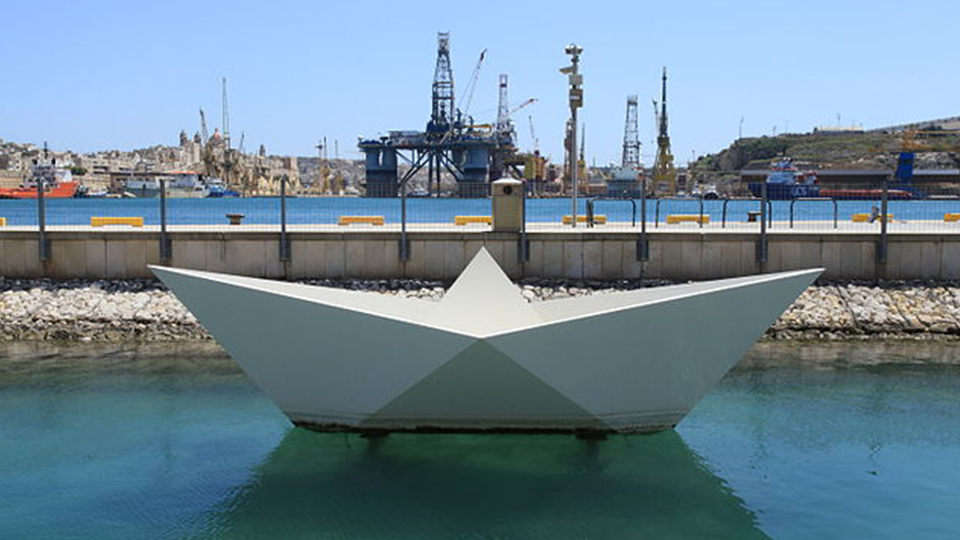The alleged takeover of a ship by migrants rescued from the Mediterranean was motivated by desperation. Dominik Kalweit from Maltese Destination Unknown member organisation Kopin explains why migrants are terrified of being returned to Libya.
On 27 March, the commercial tanker Elhiblu 1 was allegedly taken over by a small group of the 108 migrants it had saved from drowning in the Mediterranean after attempting to cross from Libya to Europe.
Was this an act of piracy, as declared by Italy’s interior minister Matteo Salvini? Not according to Professor Vella de Fremeaux, an expert in maritime law at the University of Malta.
Was the alleged taking over of the ship an act of terrorism? It is shocking that those accused of being ‘terrorists’ are merely teenagers, aged 15, 16 and 19.
What is clear is that this action was fuelled by desperation. It aimed at stopping the vessel from returning the migrants, including 19 women and 12 children, to Libya – a country many asylum seekers have described as a living hell.
The gross human and children’s rights violations experienced by migrants in Libya, regardless of their gender or age, are nothing new. Five years ago, JRS Malta’s Beyond Imagination report described how people suffered terrifying experiences of the worse kinds of abuse.
Only a few months ago, the United Nations once again raised the alarm on the situation for migrants in Libya, describing it as “desperate and dangerous”. Recent reports from international organisations and international media confirm how perilous Libya is for migrants.
According to recent research by Médecins Sans Frontières, migrant children suffer from “alarming rates of malnutrition” and are starving in Libyan detention camps, sexual violence against migrants – including men and boys – is rampant and migrants are being tortured for ransom and sold as slaves. People who left their country for a better life are experiencing unimaginable suffering.
The evidence is shocking, but it is old news. Information on the plight of migrants in Libya can easily be found online, from credible sources, for anyone who cares to search for it.
Do we care, though? Does Europe really care?
Salvini and his allies have been trying to make us believe Libya is a safe place to return asylum seekers to. This fits with Salvini’s demonisation of search and rescue NGOs, the financing of Libyan militia groups disguising themselves as coastguards and Italy’s intended blocking of a successor to the Operation Sophia rescue mission. It also distracts people from the countless lives lost in the Mediterranean year after year – 289 of which have been recorded already in 2019.
You can help change this. Tell your political representatives: #DontLetThemDrown! Stand up and make your voice heard in favour of solidarity. Speak up against misinformation, xenophobia and racism on social media. Stay informed about what’s happening. Let’s start with Libya.
Picture: The Child Migrants Memorial in Floriana, Malta. ©Frank Vincentz

